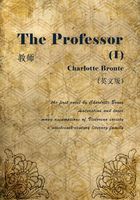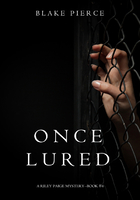"Oh! 't is hard, 't is hard to be working
The whole of the live-long day,
When all the neighbours about one
Are off to their jaunts and play.
"There's Richard he carries his baby,
And Mary takes little Jane,
And lovingly they'll be wandering
Through fields and briery lane."
—MANCHESTER SONG.
There are some fields near Manchester, well known to the inhabitants as "Green Heys Fields," through which runs a public footpath to a little village about two miles distant. In spite of these fields being flat, and low, nay, in spite of the want of wood (the great and usual recommendation of level tracts of land), there is a charm about them which strikes even the inhabitant of a mountainous district, who sees and feels the effect of contrast in these commonplace but thoroughly rural fields, with the busy, bustling manufacturing town he left but half-an-hour ago. Here and there an old black and white farmhouse, with its rambling outbuildings, speaks of other times and other occupations than those which now absorb the population of the neighbourhood. Here in their seasons may be seen the country business of haymaking, ploughing, etc., which are such pleasant mysteries for townspeople to watch: and here the artisan, deafened with noise of tongues and engines, may come to listen awhile to the delicious sounds of rural life: the lowing of cattle, the milkmaid's call, the clatter and cackle of poultry in the farmyards. You cannot wonder, then, that these fields are popular places of resort at every holiday time; and you would not wonder, if you could see, or I properly describe, the charm of one particular stile, that it should be, on such occasions, a crowded halting place. Close by it is a deep, clear pond, reflecting in its dark green depths the shadowy trees that bend over it to exclude the sun. The only place where its banks are shelving is on the side next to a rambling farmyard, belonging to one of those old world, gabled, black and white houses I named above, overlooking the field through which the public footpath leads. The porch of this farmhouse is covered by a rose-tree; and the little garden surrounding it is crowded with a medley of old-fashioned herbs and flowers, planted long ago, when the garden was the only druggist's shop within reach, and allowed to grow in scrambling and wild luxuriance—roses, lavender, sage, balm (for tea), rosemary, pinks and wallflowers, onions and jessamine, in most republican and indiscriminate order. This farmhouse and garden are within a hundred yards of the stile of which I spoke, leading from the large pasture field into a smaller one, divided by a hedge of hawthorn and blackthorn; and near this stile, on the further side, there runs a tale that primroses may often be found, and occasionally the blue sweet violet on the grassy hedge bank.
I do not know whether it was on a holiday granted by the masters, or a holiday seized in right of Nature and her beautiful spring time by the workmen, but one afternoon (now ten or a dozen years ago) these fields were much thronged. It was an early May evening—the April of the poets; for heavy showers had fallen all the morning, and the round, soft, white clouds which were blown by a west wind over the dark blue sky, were sometimes varied by one blacker and more threatening. The softness of the day tempted forth the young green leaves, which almost visibly fluttered into life; and the willows, which that morning had had only a brown reflection in the water below, were now of that tender grey-green which blends so delicately with the spring harmony of colours.
Groups of merry and somewhat loud-talking girls, whose ages might range from twelve to twenty, came by with a buoyant step. They were most of them factory girls, and wore the usual out-of-doors dress of that particular class of maidens; namely, a shawl, which at midday or in fine weather was allowed to be merely a shawl, but towards evening, if the day was chilly, became a sort of Spanish mantilla or Scotch plaid, and was brought over the head and hung loosely down, or was pinned under the chin in no unpicturesque fashion.
Their faces were not remarkable for beauty; indeed, they were below the average, with one or two exceptions; they had dark hair, neatly and classically arranged, dark eyes, but sallow complexions and irregular features. The only thing to strike a passer-by was an acuteness and intelligence of countenance, which has often been noticed in a manufacturing population.
There were also numbers of boys, or rather young men, rambling among these fields, ready to bandy jokes with any one, and particularly ready to enter into conversation with the girls, who, however, held themselves aloof, not in a shy, but rather in an independent way, assuming an indifferent manner to the noisy wit or obstreperous compliments of the lads. Here and there came a sober, quiet couple, either whispering lovers, or husband and wife, as the case might be; and if the latter, they were seldom unencumbered by an infant, carried for the most part by the father, while occasionally even three or four little toddlers had been carried or dragged thus far, in order that the whole family might enjoy the delicious May afternoon together.
Some time in the course of that afternoon, two working men met with friendly greeting at the stile so often named. One was a thorough specimen of a Manchester man; born of factory workers, and himself bred up in youth, and living in manhood, among the mills. He was below the middle size and slightly made; there was almost a stunted look about him; and his wan, colourless face gave you the idea, that in his childhood he had suffered from the scanty living consequent upon bad times and improvident habits. His features were strongly marked, though not irregular, and their expression was extreme earnestness; resolute either for good or evil, a sort of latent stern enthusiasm. At the time of which I write, the good predominated over the bad in the countenance, and he was one from whom a stranger would have asked a favour with tolerable faith that it would be granted. He was accompanied by his wife, who might, without exaggeration, have been called a lovely woman, although now her face was swollen with crying, and often hidden behind her apron. She had the fresh beauty of the agricultural districts; and somewhat of the deficiency of sense in her countenance, which is likewise characteristic of the rural inhabitants in comparison with the natives of the manufacturing towns. She was far advanced in pregnancy, which perhaps occasioned the overpowering and hysterical nature of her grief. The friend whom they met was more handsome and less sensible-looking than the man I have just described; he seemed hearty and hopeful, and although his age was greater, yet there was far more of youth's buoyancy in his appearance. He was tenderly carrying a baby in arms, while his wife, a delicate, fragile-looking woman, limping in her gait, bore another of the same age; little, feeble twins, inheriting the frail appearance of their mother.
The last-mentioned man was the first to speak, while a sudden look of sympathy dimmed his gladsome face. "Well, John, how goes it with you?" and in a lower voice, he added, "Any news of Esther yet?" Meanwhile the wives greeted each other like old friends, the soft and plaintive voice of the mother of the twins seeming to call forth only fresh sobs from Mrs. Barton.
"Come, women," said John Barton, "you've both walked far enough. My Mary expects to have her bed in three weeks; and as for you, Mrs. Wilson, you know you are but a cranky sort of a body at the best of times." This was said so kindly, that no offence could be taken. "Sit you down here; the grass is well nigh dry by this time; and you're neither of you nesh[1] folk about taking cold. Stay," he added, with some tenderness, "here's my pocket-handkerchief to spread under you to save the gowns women always think so much on; and now, Mrs. Wilson, give me the baby, I may as well carry him, while you talk and comfort my wife; poor thing, she takes on sadly about Esther."
These arrangements were soon completed; the two women sat down on the blue cotton handkerchiefs of their husbands, and the latter, each carrying a baby, set off for a further walk; but as soon as Barton had turned his back upon his wife, his countenance fell back into an expression of gloom.
"Then you've heard nothing of Esther, poor lass?" asked Wilson.
"No, nor shan't, as I take it. My mind is, she's gone off with somebody. My wife frets and thinks she's drowned herself, but I tell her, folks don't care to put on their best clothes to drown themselves; and Mrs. Bradshaw (where she lodged, you know) says the last time she set eyes on her was last Tuesday, when she came downstairs, dressed in her Sunday gown, and with a new ribbon in her bonnet, and gloves on her hands, like the lady she was so fond of thinking herself."
"She was as pretty a creature as ever the sun shone on."
"Ay, she was a farrantly[2] lass; more's the pity now," added Barton, with a sigh. "You see them Buckinghamshire people as comes to work here has quite a different look with them to us Manchester folk. You'll not see among the Manchester wenches such fresh rosy cheeks, or such black lashes to grey eyes (making them look like black), as my wife and Esther had. I never seed two such pretty women for sisters; never. Not but what beauty is a sad snare. Here was Esther so puffed up, that there was no holding her in. Her spirit was always up, if I spoke ever so little in the way of advice to her; my wife spoiled her, it is true, for you see she was so much older than Esther, she was more like a mother to her, doing everything for her."
"I wonder she ever left you," observed his friend.
"That's the worst of factory work for girls. They can earn so much when work is plenty, that they can maintain themselves anyhow. My Mary shall never work in a factory, that I'm determined on. You see Esther spent her money in dress, thinking to set off her pretty face; and got to come home so late at night, that at last I told her my mind; my missis thinks I spoke crossly, but I meant right, for I loved Esther, if it was only for Mary's sake. Says I, 'Esther, I see what you'll end at with your artificials, and your fly-away veils, and stopping out when honest women are in their beds: you'll be a street-walker, Esther, and then, don't you go to think I'll have you darken my door, though my wife is your sister?' So says she, 'Don't trouble yourself, John, I'll pack up and be off now, for I'll never stay to hear myself called as you call me.' She flushed up like a turkey-cock, and I thought fire would come out of her eyes; but when she saw Mary cry (for Mary can't abide words in a house), she went and kissed her, and said she was not so bad as I thought her. So we talked more friendly, for, as I said, I liked the lass well enough, and her pretty looks, and her cheery ways. But she said (and at that time I thought there was sense in what she said) we should be much better friends if she went into lodgings, and only came to see us now and then."
"Then you still were friendly. Folks said you'd cast her off, and said you'd never speak to her again."
"Folks always make one a deal worse than one is," said John Barton testily. "She came many a time to our house after she left off living with us. Last Sunday se'nnight—no! it was this very last Sunday, she came to drink a cup of tea with Mary; and that was the last time we set eyes on her."
"Was she any ways different in her manner?" asked Wilson.
"Well, I don't know. I have thought several times since, that she was a bit quieter, and more womanly-like; more gentle, and more blushing, and not so riotous and noisy. She comes in towards four o'clock, when afternoon church was loosing, and she goes and hangs her bonnet up on the old nail we used to call hers, while she lived with us. I remember thinking what a pretty lass she was, as she sat on a low stool by Mary, who was rocking herself, and in rather a poor way. She laughed and cried by turns, but all so softly and gently, like a child, that I couldn't find in my heart to scold her, especially as Mary was fretting already. One thing I do remember I did say, and pretty sharply too. She took our little Mary by the waist and"—
"Thou must leave off calling her 'little' Mary, she's growing up into as fine a lass as one can see on a summer's day; more of her mother's stock than thine," interrupted Wilson.
"Well, well, I call her 'little' because her mother's name is Mary. But, as I was saying, she takes Mary in a coaxing sort of way, and 'Mary,' says she, 'what should you think if I sent for you some day and made a lady of you?' So I could not stand such talk as that to my girl, and I said, 'Thou'd best not put that nonsense i' the girl's head I can tell thee; I'd rather see her earning her bread by the sweat of brow, as the Bible tells her she should do, ay, though she never got butter to her bread, than be like a do-nothing lady, worrying shopmen all morning, and screeching at her pianny all afternoon, and going to bed without having done a good turn to any one of God's creatures but herself.'"
"Thou never could abide the gentlefolk," said Wilson, half amused at his friend's vehemence.
"And what good have they ever done me that I should like them?" asked Barton, the latent fire lighting up his eye: and bursting forth he continued, "If I am sick do they come and nurse me? If my child lies dying (as poor Tom lay, with his white wan lips quivering, for want of better food than I could give him), does the rich man bring the wine or broth that might save his life? If I am out of work for weeks in the bad times, and winter comes, with black frost, and keen east wind, and there is no coal for the grate, and no clothes for the bed, and the thin bones are seen through the ragged clothes, does the rich man share his plenty with me, as he ought to do, if his religion wasn't a humbug? When I lie on my death-bed and Mary (bless her!) stands fretting, as I know she will fret," and here his voice faltered a little, "will a rich lady come and take her to her own home if need be, till she can look round, and see what best to do? No, I tell you it's the poor, and the poor only, as does such things for the poor. Don't think to come over me with th' old tale, that the rich know nothing of the trials of the poor; I say, if they don't know, they ought to know. We're their slaves as long as we can work; we pile up their fortunes with the sweat of our brows, and yet we are to live as separate as if we were in two worlds; ay, as separate as Dives and Lazarus, with a great gulf betwixt us: but I know who was best off then," and he wound up his speech with a low chuckle that had no mirth in it.
"Well, neighbour," said Wilson, "all that may be very true, but what
I want to know now is about Esther—when did you last hear of her?"
"Why, she took leave of us that Sunday night in a very loving way, kissing both wife Mary, and daughter Mary (if I must not call her 'little'), and shaking hands with me; but all in a cheerful sort of manner, so we thought nothing about her kisses and shakes. But on Wednesday night comes Mrs. Bradshaw's son with Esther's box, and presently Mrs. Bradshaw follows with the key; and when we began to talk, we found Esther told her she was coming back to live with us, and would pay her week's money for not giving notice; and on Tuesday night she carried off a little bundle (her best clothes were on her back, as I said before) and told Mrs. Bradshaw not to hurry herself about the big box, but bring it when she had time. So, of course, she thought she should find Esther with us; and when she told her story, my missis set up such a screech, and fell down in a dead swoon. Mary ran up with water for her mother, and I thought so much about my wife, I did not seem to care at all for Esther. But the next day I asked all the neighbours (both our own and Bradshaw's) and they'd none of 'em heard or seen nothing of her. I even went to a policeman, a good enough sort of man, but a fellow I'd never spoken to before because of his livery, and I asks him if his 'cuteness could find anything out for us. So I believe he asks other policemen; and one on 'em had seen a wench, like our Esther, walking very quickly, with a bundle under her arm, on Tuesday night, toward eight o'clock, and get into a hackney coach, near Hulme Church, and we don't know th' number, and can't trace it no further. I'm sorry enough for the girl, for bad's come over her, one way or another, but I'm sorrier for my wife. She loved her next to me and Mary, and she's never been the same body since poor Tom's death. However, let's go back to them; your old woman may have done her good."
As they walked homewards with a brisker pace, Wilson expressed a wish that they still were the near neighbours they once had been.
"Still our Alice lives in the cellar under No. 14, in Barber Street, and if you'd only speak the word she'd be with you in five minutes to keep your wife company when she's lonesome. Though I'm Alice's brother, and perhaps ought not to say it, I will say there's none more ready to help with heart or hand than she is. Though she may have done a hard day's wash, there's not a child ill within the street, but Alice goes to offer to sit up, and does sit up, too, though may be she's to be at her work by six next morning."
"She's a poor woman, and can feel for the poor, Wilson," was Barton's reply; and then he added, "Thank you kindly for your offer, and mayhap I may trouble her to be a bit with my wife, for while I'm at work, and Mary's at school, I know she frets above a bit. See, there's Mary!" and the father's eye brightened, as in the distance, among a group of girls, he spied his only daughter, a bonny lass of thirteen or so, who came bounding along to meet and to greet her father, in a manner that showed that the stern-looking man had a tender nature within. The two men had crossed the last stile, while Mary loitered behind to gather some buds of the coming hawthorn, when an overgrown lad came past her, and snatched a kiss, exclaiming, "For old acquaintance sake, Mary."
"Take that for old acquaintance sake, then," said the girl, blushing rosy red, more with anger than shame, as she slapped his face. The tones of her voice called back her father and his friend, and the aggressor proved to be the eldest son of the latter, the senior by eighteen years of his little brothers.
"Here, children, instead o' kissing and quarrelling, do ye each take a baby, for if Wilson's arms be like mine they are heartily tired."
Mary sprang forward to take her father's charge, with a girl's fondness for infants, and with some little foresight of the event soon to happen at home; while young Wilson seemed to lose his rough, cubbish nature as he crowed and cooed to his little brother.
"Twins is a great trial to a poor man, bless 'em," said the half- proud, half-weary father, as he bestowed a smacking kiss on the babe ere he parted with it.















